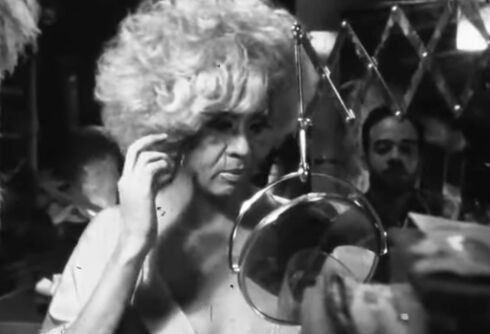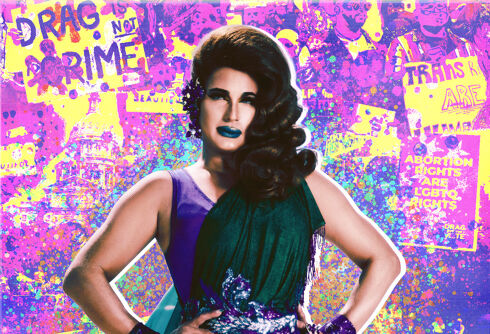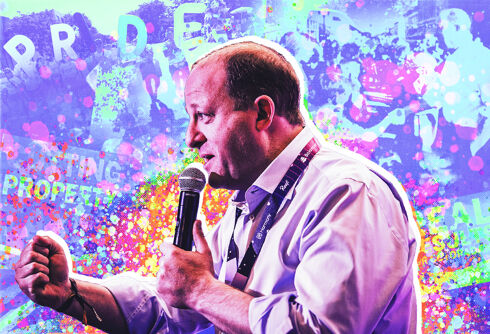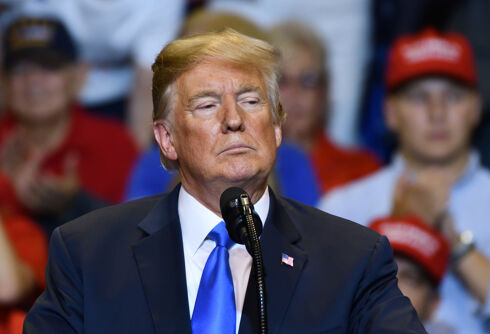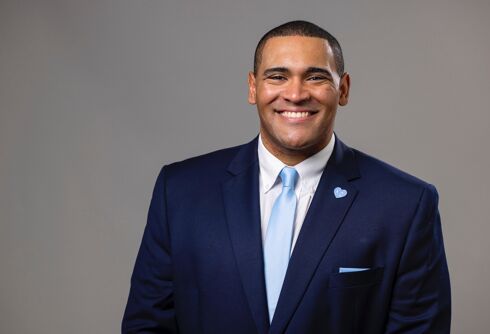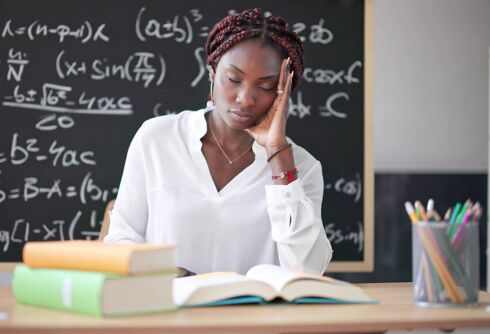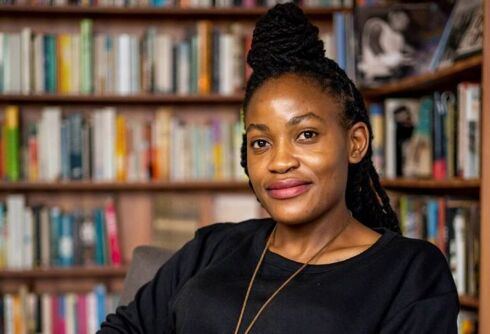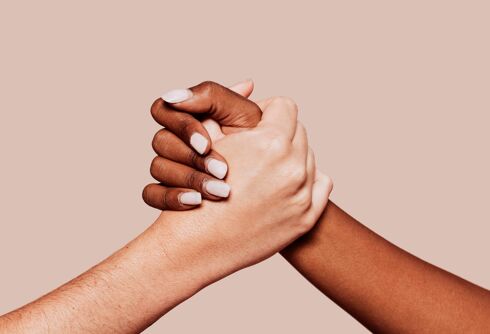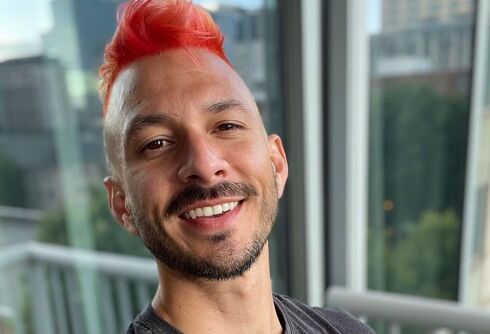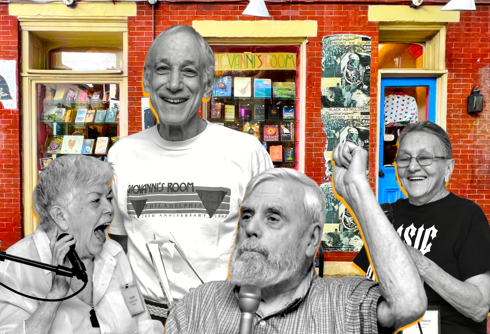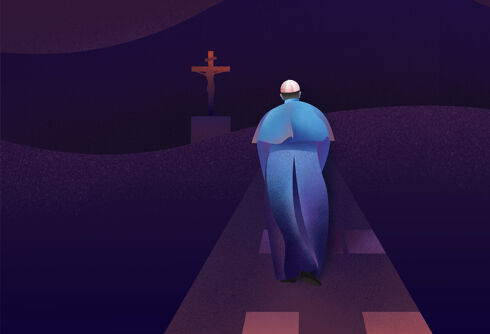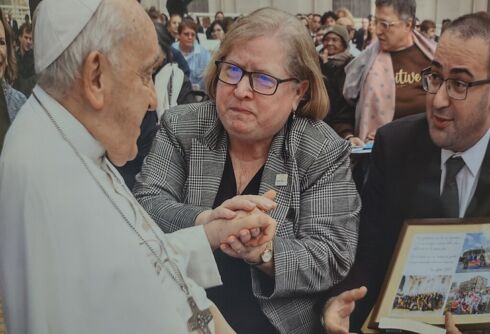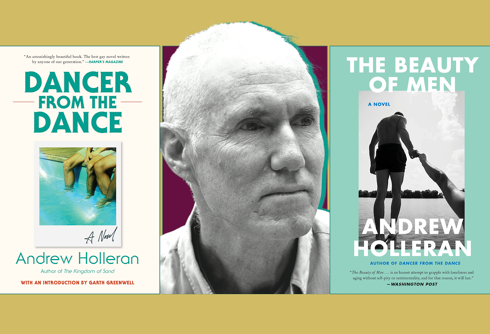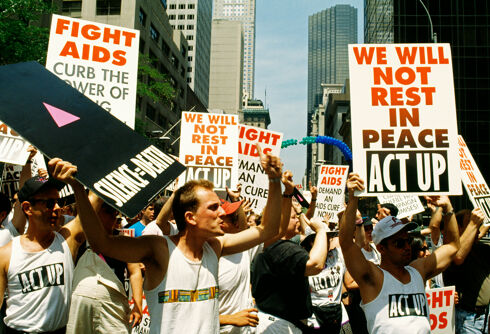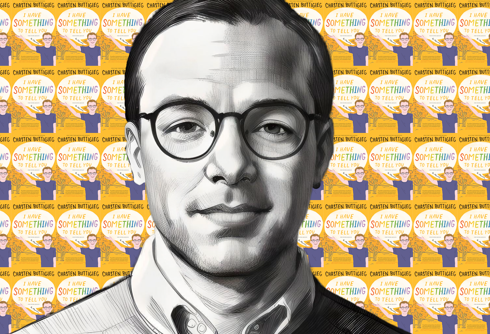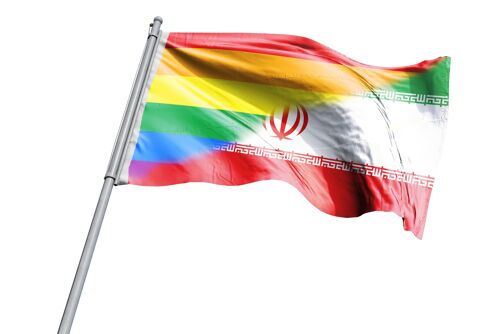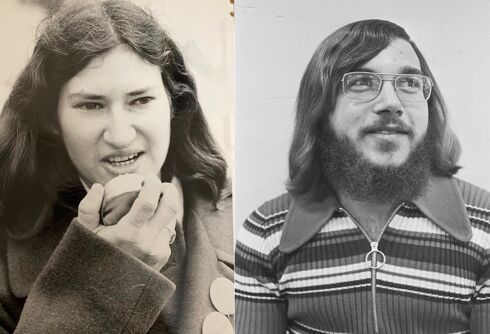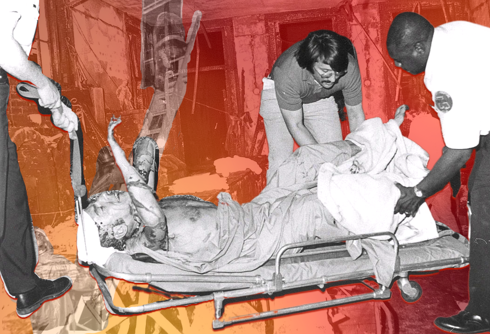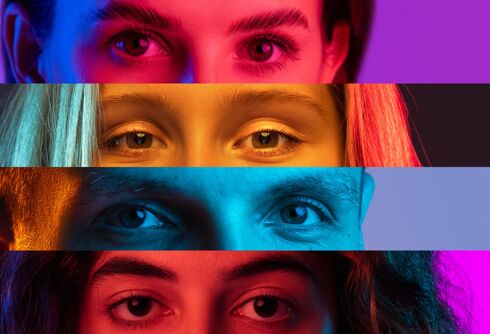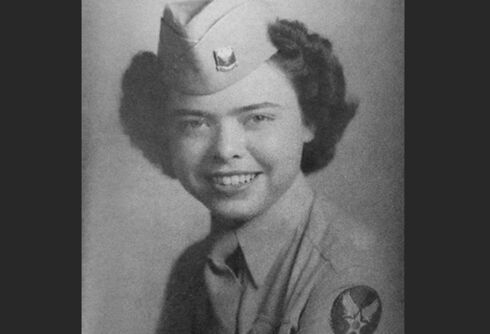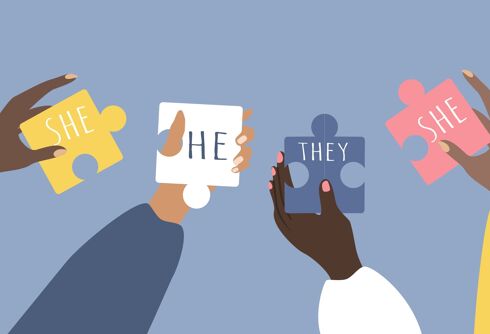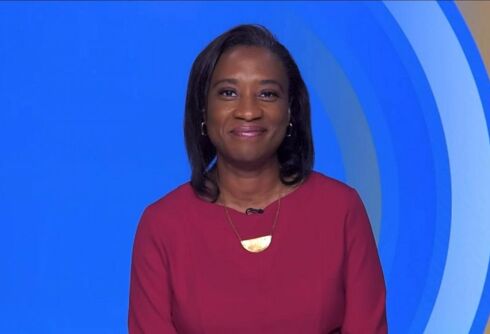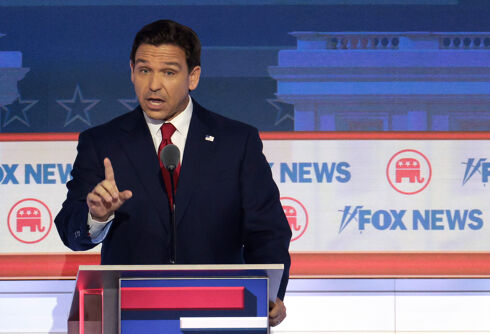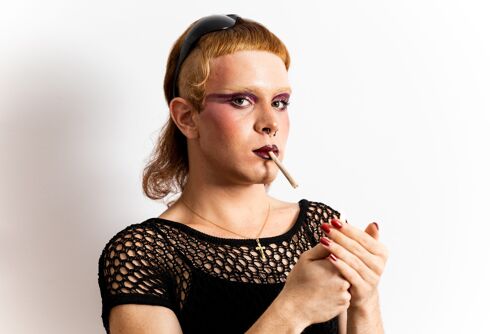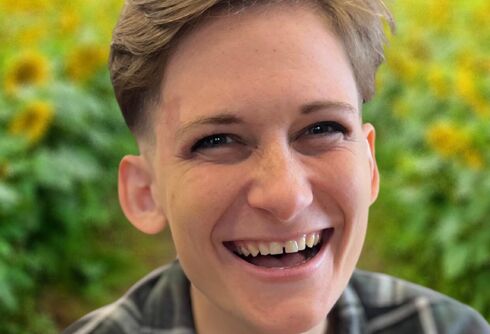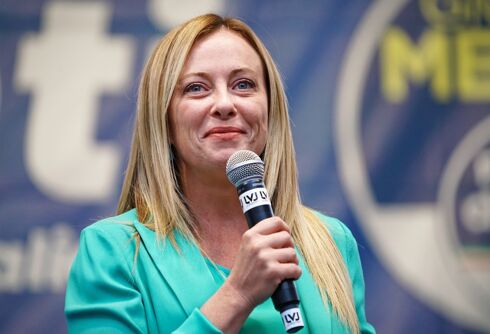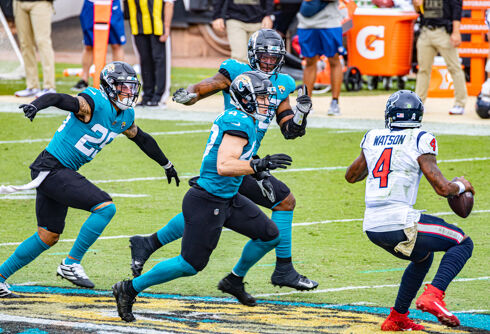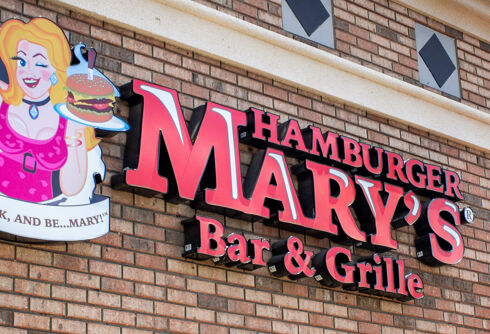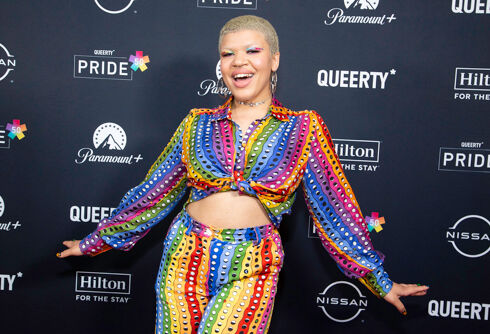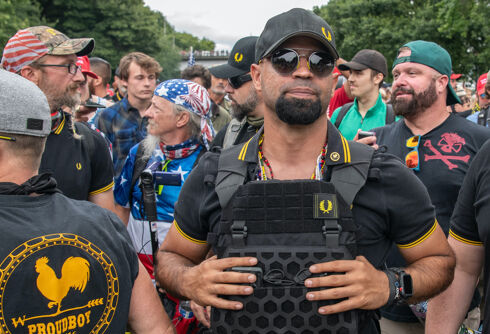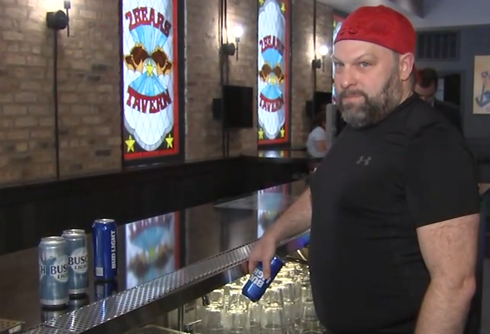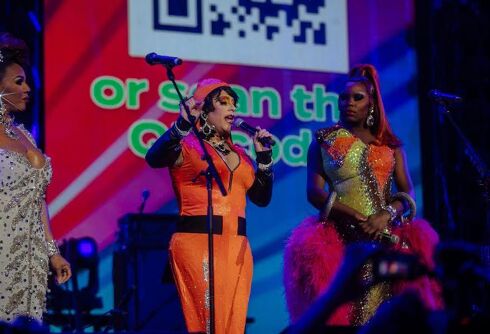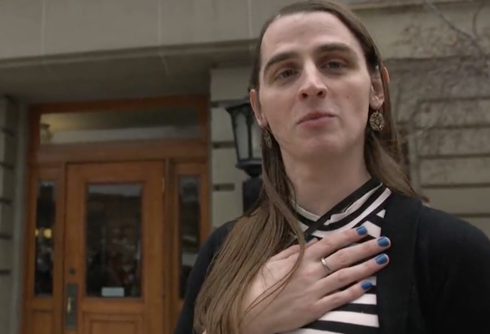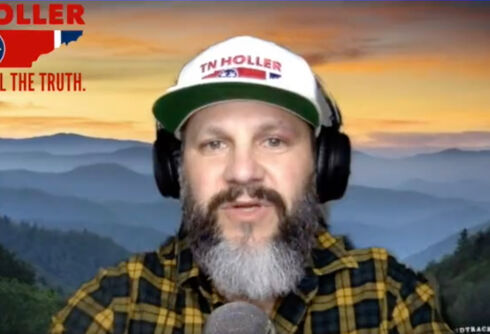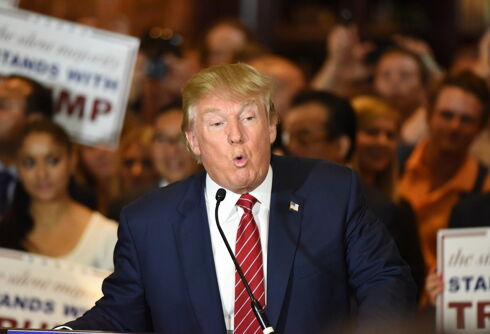LGBTQ voters are more accepting of minority candidates, a recent study found.
A Williams Institute and Reuters/Ipsos poll conducted earlier this year asked registered voters if they are more or less likely to support candidates who are black, Latino/a, or LGBTQ. Then they separated LGBTQ voters’ responses.
Related: LGBTQ people are more sensitive to bias against other minorities
Around 35% of straight, cis people said that they would be less likely to vote for a gay or lesbian candidate, while 6% to 11% of LGBTQ people said the same.
Never Miss a Beat
Subscribe to our newsletter to stay ahead of the latest LGBTQ+ political news and insights.
(In all the charts, yellow bars represent LGBTQ voters, gray bars represent non-LGBTQ voters. All of them are from the Williams Institute report.)


When it comes to transgender and non-binary candidates, the difference is even more stark. Almost half of non-LGBTQ voters said they would be less likely to vote for a transgender or non-binary candidate, but only 14% of LGBTQ voters said the same.


Straight people’s reticence to vote for LGBTQ candidates explains why only 0.1% of elected officials in the U.S. are LGBTQ, according to a 2018 Victory Fund report.
The issue isn’t just representation; LGBTQ voters were more likely to say that they would vote for racial minority candidates.
Around 35% of LGBTQ voters said that they would be more likely to support a black candidate and about the same percentage said they would be more likely to support a Latino/a candidate, whereas only 16% to 21% of cisgender, heterosexual voters said the same.
Non-LGBTQ voters were more likely to say that would be less likely to vote for a black or Latino/a candidate.


Several websites have said that the survey shows that LGBTQ people are less likely to be registered to vote, which is not exactly true. While the survey found that 21% of LGBTQ adults weren’t registered to vote – as opposed to 17% of non-LGBTQ adults – it also had a small sample size of 136 LGBTQ registered voters. This means that the margin of error (a 95% confidence interval) was over 6%, more than the difference between the percent of unregistered LGBTQ and non-LGBTQ adults.
While it’s still more likely that fewer LGBTQ adults are registered to vote, that’s easy to understand considering how young the LGBTQ population is. 47% of LGBTQ adults were under the age of 34 in the poll, versus 24% of non-LGBTQ adults. Other surveys have shown that younger generations in the U.S. are more likely to be LGBTQ, and younger adults are much less likely to be registered to vote.
A larger poll would be needed to show if LGBTQ people are more or less likely to vote, and if this difference can be accounted for by the age difference between LGBTQ people and cisgender, heterosexual people. While LGBTQ people might have a harder time voting because of limited access to necessary documents, homelessness, and unemployment, they might also be more motivated to get to the polls because their rights are on the line in every election.




































